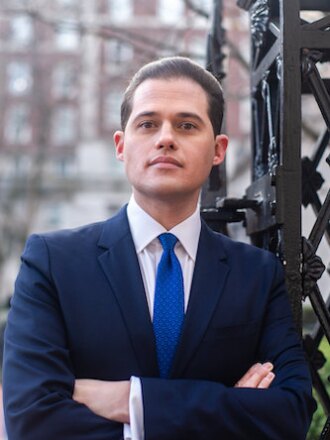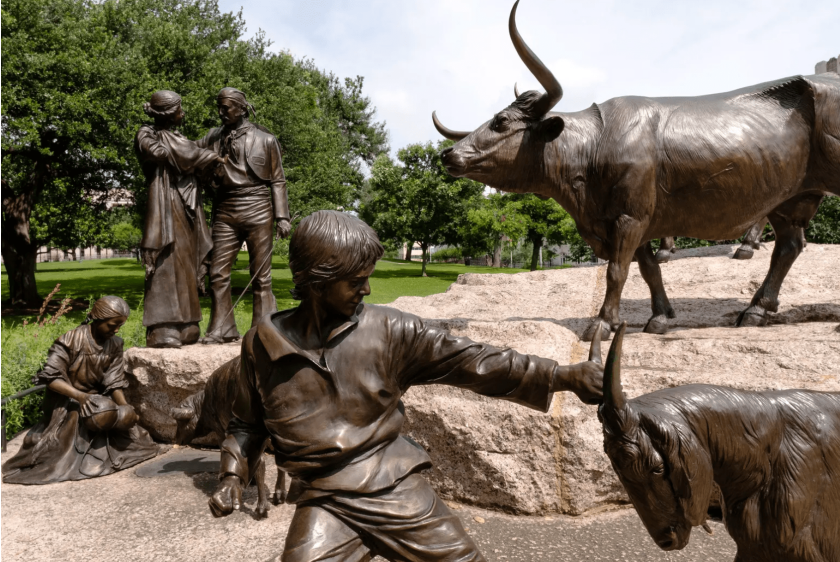Whether ballot counting, law enforcement, public health mandates or election “reform,” government has done something to exasperate Americans on every part of the political spectrum in the past year. The most dramatic manifestation of this frustration, the Jan. 6 invasion of the Capitol to prevent Congress from certifying the results of the presidential election, was also a profound demonstration of civic illiteracy.
A May 2021 Reuters/Ipsos poll found that nearly two out of three Republicans still believe the election was stolen, and many of their representatives in Washington are unwilling to say otherwise. “We’ve got people we’ve entrusted with the perpetuation of the Republic who don’t know what the rule of law is,” Rep. Liz Cheney toldThe New York Times. “We probably need to do Constitution boot camps for newly sworn-in members of Congress.”
President Biden has called for greatly increased attention to civics and history education, and several proposals have been put forward by members of Congress. The bipartisan Civics Secures Democracy Act aims to “restore the importance placed on civics education in American classrooms with targeted federal investments to support and expand access to civics and history education.”
The bill authorizes $1 billion annually for six years to fund federal grants to state education agencies, nonprofit organizations, institutes of higher education and researchers.
A Special Unity
“It brings people together,” he says. “I can talk to some of the most conservative people, or some of the most liberal people and everybody says, ‘This is important.’ That’s rare.”
The center, founded in 1965, is active in every state, working with partners including bar associations, colleges, schools and foundations to promote teaching and learning about the Constitution, the Bill of Rights, government institutions and the rights and responsibilities of citizens. It advances this work through curriculum, teacher training and community-based programs.
Riano is well-prepared to lead these efforts. A constitutional law scholar, he’s lectured at Columbia University since 2012 and served the public sector as an assistant counsel to the governor of New York and as an administrative law judge for the state, among other positions. His book on the history of the marriage equality movement, Marriage Equality: From Outlaws to In-Laws, co-authored with Yale Law professor William Eskridge, received a Silver Gavel award from the American Bar Association.
“People experience constitutional moments every day,” says Riano. “They may not experience a mathematical moment or scientific moment every couple of hours, but people have civic moments constantly, day in and day out.”
In a conversation with Governing, Riano talked about some of the considerations that can guide progress toward reducing civic illiteracy.

(Brian Gorman/Center for Civic Education)
Christopher Riano: With the lens that we have on the field at the moment, it is a time where a lot of good can happen.
A civics and constitutional education really can be a unifying force, and should be seen as a unifying force for all Americans.
Governing: There’s been a great deal of turmoil around voting. As vital as that is, is that all we should be talking about?
Christopher Riano: It’s important to go and vote and to be a participant in democracy, but the day after you vote it’s also important to go and be a participant in your community.
It’s critical that people see civic and constitutional education from both a historical perspective and an engagement perspective. Our constitutional democracy expects active participation, and that doesn’t end at the ballot box. It doesn’t end in the jury room. It’s an everyday call.
When people become disengaged, that’s not good. I think that’s why there’s heightened awareness around civic education — not just K-12 education, but throughout one’s life.
Governing: What’s an example of a common confusion or misunderstanding?
Christopher Riano: As one simple example, media can often focus on the federal government, but your day-to-day life is much more influenced by local officials.
The Constitution sets up the federal government as a reserved power entity, and the states are where the vast majority of laws are supposed to be created, debated and implemented. It’s important to understand why, historically, the system was set up where federal government is limited.
I often go around my classroom and ask students who their state or local representatives are, and many of them don’t know. It’s not difficult to have access to your city council members or board members in your community or your county or your district.
Governing: Does the public notice things that government does right?
Christopher Riano: I grew up outside of Washington, D.C., and I come from a family where both my mother and father worked in the federal service. I remember being very young and having a conversation with my father about how, if he didn’t do a good job, it would be in the paper, but if he did a good job, nobody would ever know.
It may be that we expect government to work, and so we only think about it when it doesn’t.
Governing: A Senate bill proposes $1 billion a year for six years for civic and history education. Is that enough?
Christopher Riano: It’s a start. I was an engineering student at Carnegie Mellon and I am the first to celebrate the importance of a STEAM [science, technology, engineering and math] education and science and technology and math.
But if we don’t have the investment in civic education and constitutional education that’s required, and people don’t understand how government functions, how to engage with government and make positive change, many of the things that are possible through science and technology education will no longer be possible because we won’t have a functioning society.
The bill is a great first step and a great example of what it means to have bipartisanship.
Governing: If more money comes, what kinds of things could you do?
Christopher Riano: I have a big goal in mind for my own organization — to push through the K-12 barrier, to get into adult education and ensure civic education is something that’s accessible throughout one’s life.
That’s something that I’ve been focused on, bill or no bill.
Governing: Is there an end point for these efforts?
Christopher Riano: This has been news for 200 years. I could gather the top free speech and free expression scholars in the country and none of them would agree 100 percent on what the First Amendment says or means.
We’re never going to be done with this. It’s something we always have to be thinking about and working on.
Related Articles













